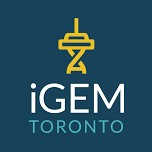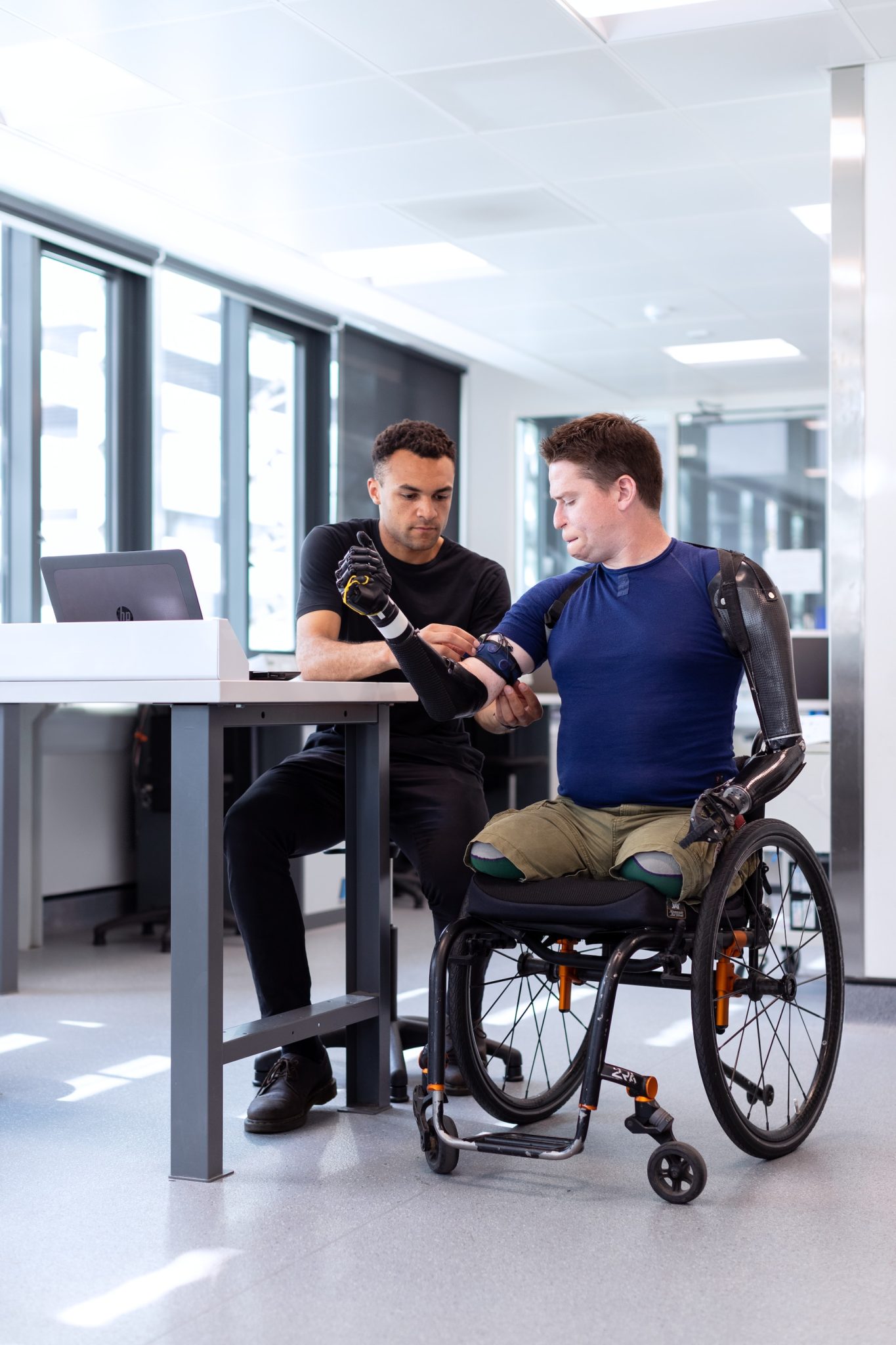Q: What do you call an organic compound with an attitude?
A: A-mean-o acid.
What is Biomedical Systems Engineering?
Biomedical Systems Engineering (a.k.a. Biomed) combines life sciences, engineering, and physical sciences to solve fundamental biological questions and challenging healthcare problems. Biomedical Engineers design artificial organs and prosthetics, create biomaterials for drug delivery, use machine learning to improve medical imaging, and more.
The major includes four focus areas:
- Regenerative medicine and biomaterials
- Systems and synthetic biology
- Neuro sensory and rehab engineering
- Sensors, nano/microsystems and instrumentation.
EngSci’s Biomedical Systems Engineering major is offered in collaboration with U of T’s Institute of Biomedical Engineering (BME), a world-renowned multidisciplinary research facility. Through this partnership, the major lets you learn from and work with professors, researchers, and graduate students working at the leading edge of biomedical engineering. They also have close links to many major hospitals and other U of T departments, which provide incredible opportunities for student experience in the field.
Why Choose Biomedical Engineering?
Why Choose This Major?
You’re interested in:
- Areas of biotech, like biological systems and synthetic biology.
- Fields related to medicine and rehabilitation.
- Micro and nano technologies.
- Developing life-saving artificial organs (like 3D printing artificial hearts), to reduce dependency on limited donors.
Where Can This Major Take You?
Recent EngSci Biomed graduates have pursued graduate studies at top universities such as:
- Columbia University
- ETH Zurich
- Harvard-MIT Program in Health Sciences and Technology
- Johns Hopkins University
- Stanford University
- University of British Columbia
- University of Toronto
Sample employers for recent Biomed graduates include:
- Baylis Medical
- Microsoft
- GE Healthcare
- Apple Health
EngSci Biomed graduates have also started companies such as Xpan and LSK Technologies.
Courses in Year 1 and Year 2 That Relate to Biomedical Engineering
Almost everything you learn in the foundation years can relate to Biomedical Systems Engineering. For example, you might design electronics and software for prosthetics, in which case courses such as ECE159 (Fundamentals of Electric Circuits), ESC190 (Computer Algorithms and Data Structures) and ECE253 (Digital and Computer Systems) will be important. If you’re interested in biomaterials, then MSE160 (Molecules and Materials) will be of particular interest. Below are just a few examples of relevant courses and their applications to Biomedical Systems Engineering.
Year 1
MSE160 teaches you about key concepts in chemistry and materials science, and their applications to current applications in biological and chemical engineering.
ESC101 and ESC102 are built around design projects, which are a huge part of the Biomed major. Biomed design projects often arise in our Praxis courses and are a great way to practice your skills in the design process. Some examples of Biomed-based Praxis projects are redesigning the naloxone kits used to treat overdoses, and improving hospital waiting rooms. Through interacting with communities, you’ll get exposure to consulting with healthcare professionals and patients.
Year 2
BME205 is a review and extension of high school biology. While reviewing things like cell biology and anatomical systems, you’ll also be exposed to various fields in biomedical engineering, like medical devices. The biology labs that are part of this course will give you experience for future practicals in the Biomedical Systems Engineering major.
Interesting Courses in This Major
The courses in the BME major are vast and span categories from molecular biology to organ systems, to medical device design, and even computer science. As mentioned earlier, you can customize your degree based on the technical electives you choose. Below are just a few examples. For a complete list, please visit the EngSci Calendar Website.
BME410: Regenerative Engineering
This course is about the integration of regenerative medicine, clinical engineering, human biology & physiology, advanced biomaterials, tissue engineering, and stem cell and developmental biology, to create new therapies. Beginning with stem cell biology, the course works its way up to complex tissues and organs. The first half of the course involves 2D and 3D tissue and organ development, while the second half involves the integration of medical devices, technologies, and treatments into healthcare, also discussing clinical trial logistics, ethics, and processes. Students will participate in workshops, seminars, and research facility tours for projects and assignments.
MIE439: Biomechanics I
This course applies principles of mechanical engineering, such as solid mechanics, fluid mechanics, and dynamics, to living systems, discussing cellular mechanics, blood rheology, circulatory mechanics, respiratory mechanics, skeletal mechanics, and locomotion. A major, integrative group project applies these topics to biomimetic and biomechanical design.
ECE448: Biocomputation
This course is about computer algorithms that find patterns in biological data. Topics include molecular cell biology, sequence alignment, deep learning, phylogenetic prediction, structure-based computational methods, and gene finding and annotation.
BME595: Medical Imaging
This course covers magnetic resonance, ultrasound, x-ray, and clinical optical imaging, and nuclear medicine, emphasizing the physics and mathematics behind each modality and the role of each in a clinical setting. The labs will involve image reconstruction and analysis for the various imaging modalities, including a live animal imaging session.
See the full course listing for each EngSci major in the academic calendar.
Where To Get Some Experience Before Deciding?
Club for Undergraduate Biomedical Engineering (CUBE)
CUBE offers events like the Biomedical Engineering Competition (BMEC), where participants work together in teams to come up with solutions to solve health problems. These solutions are judged by people from industry and research fields.
They also host a lab skills workshop series, where students can develop key lab skills such as pipetting, microscopy, and general lab safety. You also have the chance to go on field trips to see a biomedical laboratory where real researchers and scientists work.
CUBE also hosts seminars, such as the summer research seminar for networking with Master’s and PhD students in BME. You can also attend the Professor Mixer with professors from BME, or the Industry Mixer with industry professionals from biomedical companies.

International Genetically Engineered Machine (iGEM) Toronto
iGEM is a student association that will help you learn more about synthetic biology. Every year the team designs a synthetic biology research project and competes with other schools at the annual iGEM Grand Jamboree.
iGEM also hosts seminars and discussions throughout the year, as a space for students interested in synthetic biology to gather and learn more about biomedical engineering design. These seminars also offer a way for you to interact with industry professionals and U of T Engineering alumni.
Visit the Skule Clubs and Design Teams pages to find more extracurriculars.

Check out the EngSci majors website here for more info:

